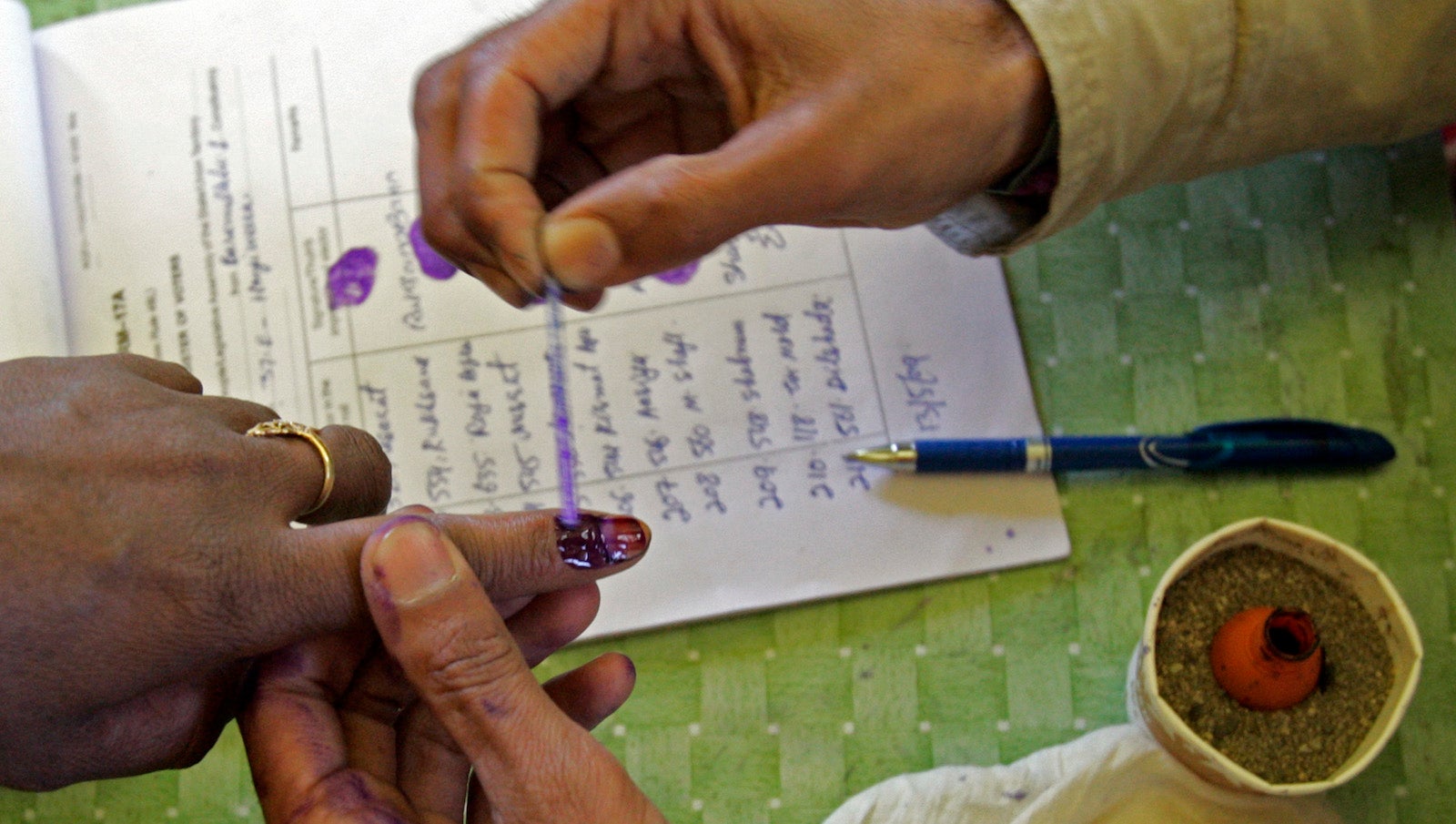Banks will ink the fingers of desperate Indians exchanging banned currency to stop them from visiting twice
To control the frenzy caused by prime minister Narendra Modi’s demonetisation announcement last week, India is resorting to a tactic it uses to avoid fraudulent voting during elections. The government has asked banks to put indelible ink marks on the fingers of those exchanging the now-banned Rs500 and Rs1,000 currency notes.


To control the frenzy caused by prime minister Narendra Modi’s demonetisation announcement last week, India is resorting to a tactic it uses to avoid fraudulent voting during elections. The government has asked banks to put indelible ink marks on the fingers of those exchanging the now-banned Rs500 and Rs1,000 currency notes.
Marking the fingers with indelible ink, which typically stays on for several days, is done during elections in India so that once a person has voted, he or she can’t vote again. Now this will help banks identify repeat visitors.
Many Indians have been making multiple visits to the bank carrying a small sum each time, to avoid garnering attention. “You find the same people coming back again and again,” India’s secretary for economic affairs, Shaktikanta Das, reportedly said during a media briefing on Nov. 15. The long queues caused by this were making it difficult for “honest people” to get cash, Das said.
The currency ban is meant to counter huge amounts of undeclared income—or black money—and fake currency, Modi said last week. Note holders have until Dec. 30 to deposit the old bills and get replacements from banks and post offices. This will force those who have hoarded cash to declare it. Small deposits of up to Rs250,000 will not face any scrutiny but larger amounts will be questioned, India’s finance minister Arun Jaitley said on Nov. 10. Note holders can also exchange their currency for new notes but can only swap Rs4,500 ($66.50) at a time.
The new policy of inking has already raised concerns at the Election Commission (EC) of India, which oversees all poll processes in the country. It has requested a reconsideration of the plan as five states have elections scheduled on Nov. 19 for a few locals constituencies, the Press Trust of India reported. In a letter, EC told the government that if people are marked by banks, it will confuse the polling officers.
Some media reports suggest that the government has addressed this concern by directing banks to apply the ink marks on the fingers of people’s right hands, while the one for voting will be on those of the left.